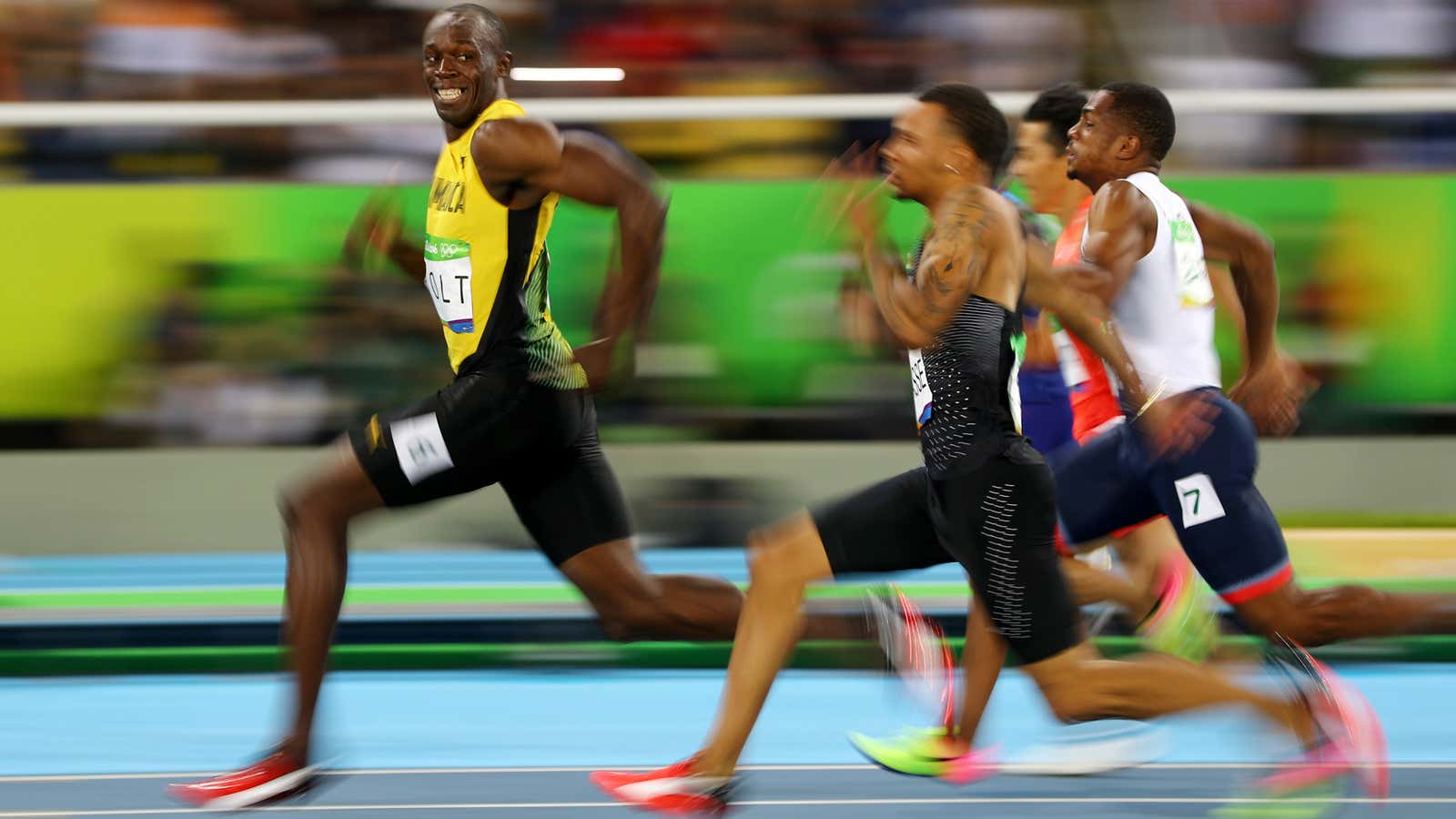If you take a look at the all-time Summer Olympics medal table, it is no surprise that the US comes top with 976 gold medals. After all, the US tops the rest of the world in total GDP and comes in third in the ranking of most-populous nations. The combination of tremendous resources to spend on coaching and development with a huge pool of potential talent is almost a guarantee of sporting success.
And yet, if you look a bit farther down the medal table you’ll find Jamaica sitting pretty in 42nd place, with 77 Olympic medals. That might not seem so impressive, but if you consider that Jamaica ranks 117th in the GDP standings and 141st by population, its Olympic record is actually quite stunning. How has this smallish nation climbed the ladder of sporting achievements? Well, if you take a quick look at each of their Olympic successes, the answer becomes clear: Every single one of Jamaica’s Olympic golds has been awarded for a sprint competition.
Focus makes perfect
By focusing on the handful of activities that they know will bring them success, the Jamaican Olympic team are practicing a new-ish philosophy—even if they aren’t aware of it—called Essentialism. In his book Essentialism: The Disciplined Pursuit of Less, Greg McKeown explains that instead of trying to do as much as possible with a given time, the essentialist focuses only on doing the things that matter. Most people feel the obligation to do all that is asked of them, and this usually ends up with them doing too much. An essentialist, on the other hand, just concentrates on doing what brings value to their life and career. To find this they first explore and evaluate by asking of everything they do: “Does doing this bring me closer to where I want to be?” If the answer is negative or uncertain, then the item in question gets eliminated.
With a pared-back list of priorities, the essentialist can begin to execute each task in the most efficient manner. By focusing on fewer, more critical elements, the essentialist nails the important stuff. From an essentialist perspective, it stands to reason that if the Jamaican Olympic team were to spread resources a little wider—maybe give their boxing teams or swimming teams some of the training resources and attention their sprinting team gets—they’d probably end up with no additional medals in swimming and boxing, and fewer victories in sprinting. Their champion sprinters could lack the optimum coaching and development they needed to get the gold. This is perhaps the reason behind the country’s poor success at the 1984 Games. The 43 athletes sent to Los Angeles, contained 13 who were not track and field; compared to the four Gold, four Silver, and four Bronze won in London, the Los Angeles generation brought back just one Silver and two Bronze.
Life lessons in essentialism and sport
We can all learn a simple lesson from the Jamaican sprint team’s focus: Whatever we do, whoever we are, we should pour our energy and drive into doing the things that bring us reward.
Here’s an essentialist experiment for you: Think about what you devote your time and energy toward each week and compare it to what you really excel at and feel happiest doing. The things that don’t serve your goals or bring you joy, consider cutting out, or devoting a little less focus to. By clearing the track of the non-essentials, you’ll soon find yourself sprinting ahead in life.
This post originally appeared at Blinkist.
